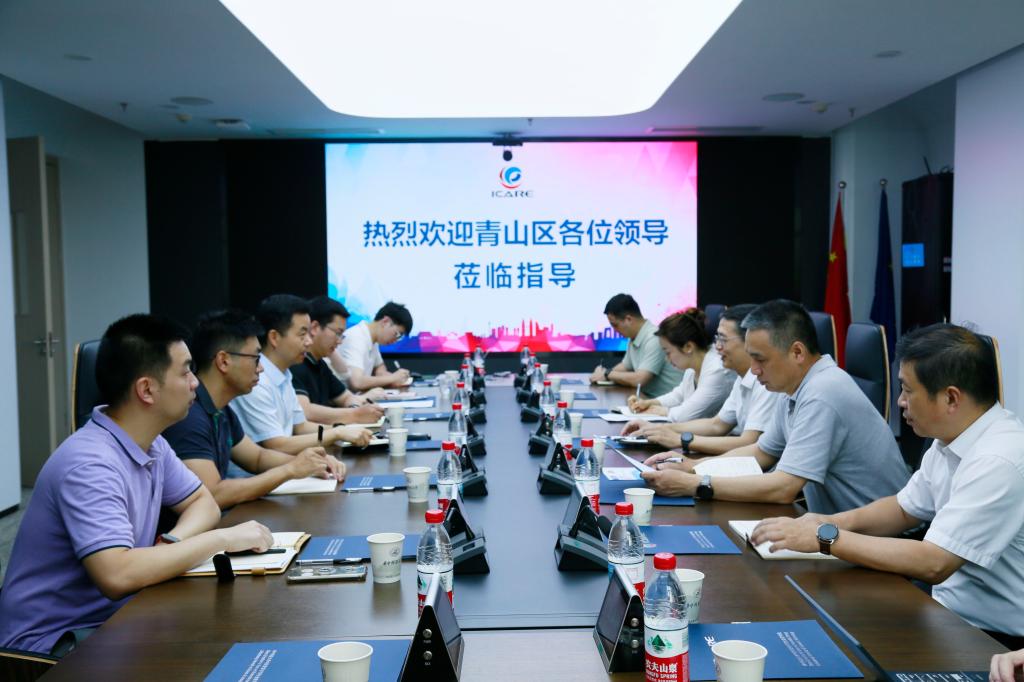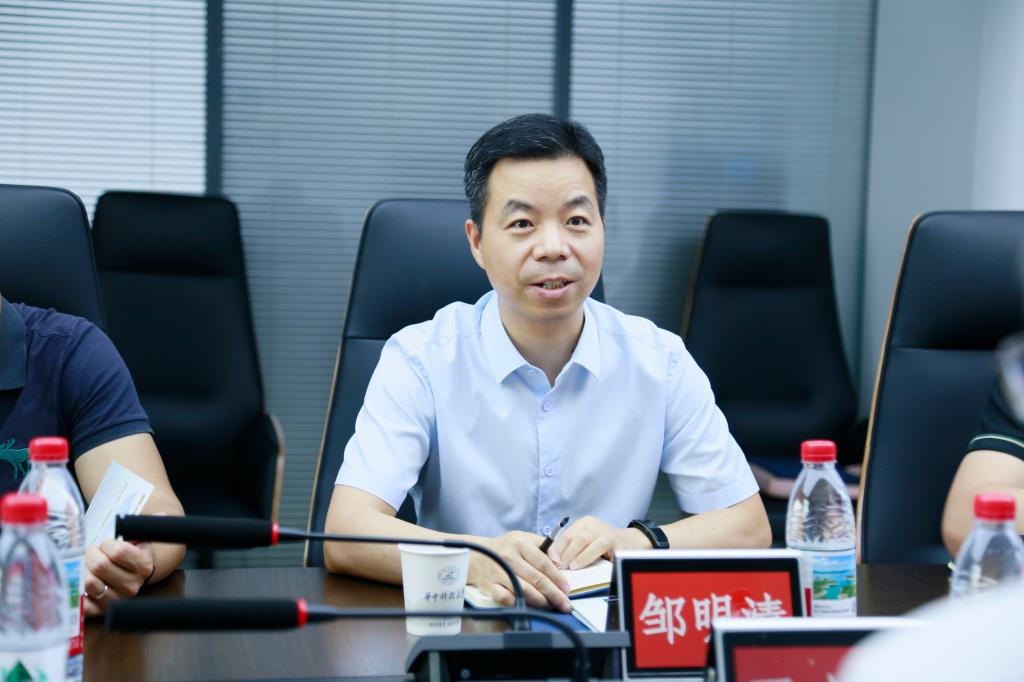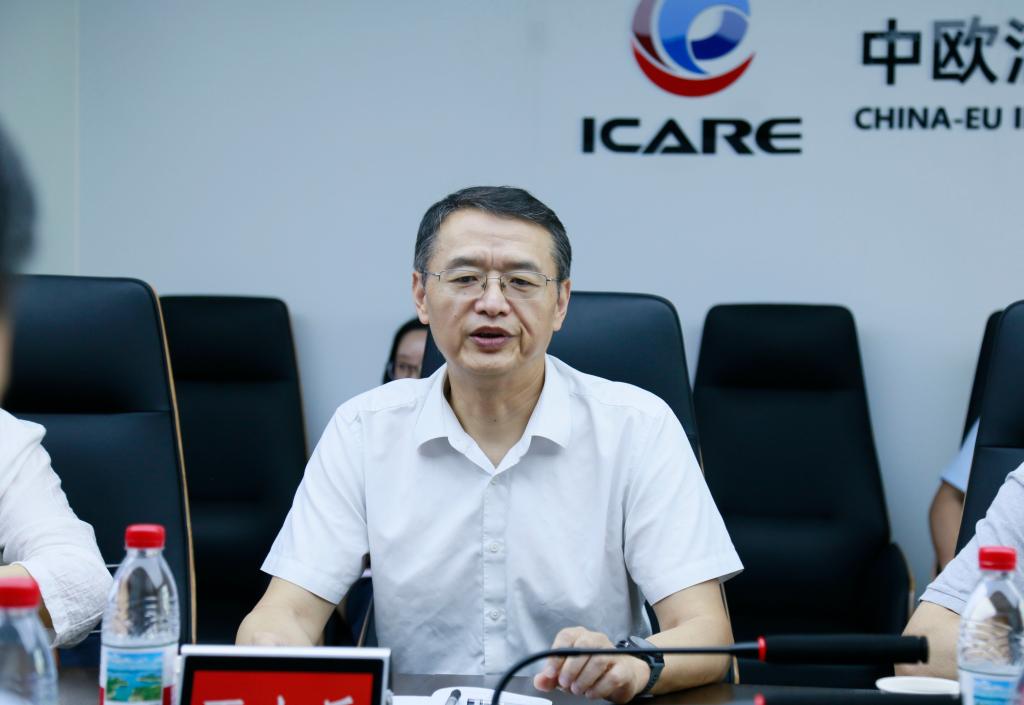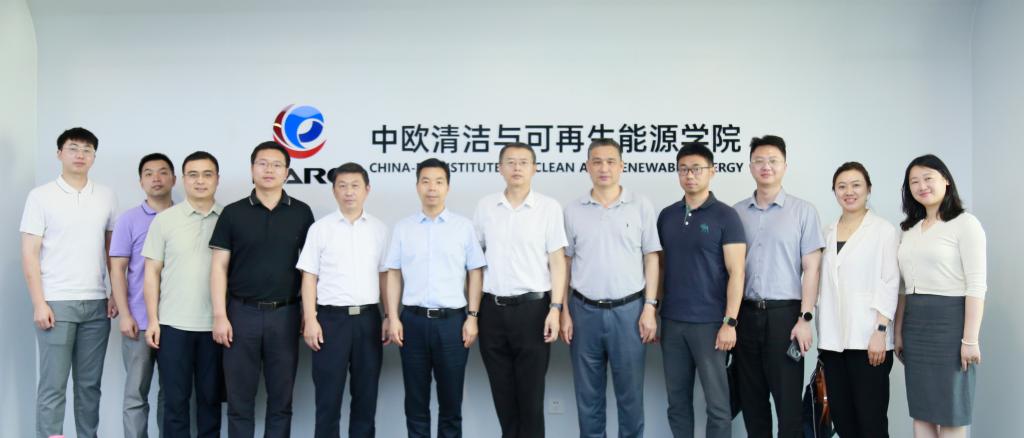On the morning of June 6, Mr. Wang Xiaobing, Deputy Director of the Wuhan Chemical Industry Zone Management Committee, visited ICARE accompanied by the heads of the Development and Reform Bureau, Economic and Technological Bureau, Commerce Bureau, Industrial Investment Group, and Sinopec-SK Wuhan Petrochemical. Dr. Zou Mingqing, Vice Dean of ICARE, welcomed the distinguished guests.

Dr. Zou extended a warm welcome and systematically introduced ICARE’s founding background, development history, and educational features. He highlighted the institute’s achievements in education and research across six major focus areas, including hydrogen energy, biomass energy, and energy efficiency. He expressed hope for in-depth collaboration between industry, academia, and research, particularly in key technological areas such as industrial energy-saving, biomass utilization, and hydrogen production and storage.

Mr. Wang Xiaobing noted that Qingshan District (Wuhan Chemical Industry Zone) has ranked among China’s Top 100 Industrial Zones for three consecutive years. As the largest steel and petrochemical production base in Central China, and a vital chemical logistics hub along the Yangtze River, Qingshan District has significant energy demands for the production of ethylene, propylene, and silicon steel processing. He emphasized the need for strong cooperation in new materials research and industrial low-carbon energy conservation.

Following a brief introduction of Sinopec-SK Wuhan Petrochemical’s development, its representative engaged in a detailed exchange with Associate Professors Jiang Long and Guan Yin from the School of Energy and Power Engineering. Discussions focused on the industrial potential of biomass aviation kerosene, the economic benefits of biomass co-firing, and the utilization of high-purity carbon dioxide, including technical specifics.

Finally, representatives from the Development and Reform Bureau, Economic and Technological Bureau, Commerce Bureau, Industrial Investment Group, and other units presented the zone’s advantages in policy, innovation resources, and industrial support. They warmly invited ICARE faculty and students to participate in transforming scientific achievements and introducing innovative resources into the Wuhan Chemical Industry Zone, aiming for win-win cooperation between academia and industry.



